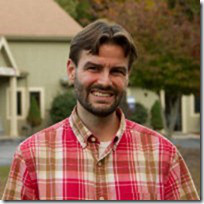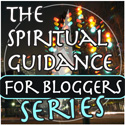Shownotes Episode 16 – Apophatic prayer explained in a conversation with Dr. Laurie Mellinger.

Laurie Mellinger, Ph.D.
Associate Professor of Spiritual Formation and Christian Theology
Dean of Academic Programs
B.A. Millersville University; M.A.R. Evangelical School of Theology; Ph.D. The Catholic University of America
Get your spiffy guide to the ancient Christian prayer practice of praying using Scripture called Lectio Divina (latin for “sacred reading”). It’s the perfect go-to reference and resource to get started with the four movements of Lectio that lead us to praying without words and listening to God.
A donation of 50¢ or more will get you this essential Lectio Divina resource.
Click HERE to download it now!
Encountering and examining Apophatic (contemplative) Prayer
Podcast: Play in new window | Download (Duration: 55:12 — 75.8MB) | Embed
Subscribe to Spark My Muse Apple Podcasts | Spotify | Email | TuneIn | RSS | Subscribe to Spark My Muse
Conversation Notes
MINUTE 2:00 Apophatic not to be confused with apathetic
3:00
2 main ways of understanding God
Via Eminencia -The way of eminence
The highest of something we know as humans and elevating it. Power, strength “The most powerful”, omnipotent)
Via Negativa – The way of negation (Denying the limited or bad we can observe. God is Immortal (NOT mortal).
5:00
Katophatic (or cataphatic) vs. Apophatic Prayer
Katophatic – What we can see and say in prayer.
Apophatic – We we cannot see and bri; and without our senses.
6:00 Meditation and how it relates to apophatic prayer
6:30 What is Lectio Divina
Reading scripture and prayer as we seek relationship with God
The four movements of this form of prayer.
12:00
Eastern vs. Western styles of Meditation
Experiencing vs. Word-driven forms
15:30
Contemplation 2 going definitions
1. To observe
2. Contemplative to look at with continued attention.
16:00
Contemplative vs. Discursive prayer
18:00
21:00
Apophatic prayer as a way to pray without ceasing
22:00
Allowing God to be in every moment, even with every breath.
Laurie’s experience with the Jesus Prayer
Being carried along through pain knowing experiencing that God was with her.
Celebration of Discipline-Richard Foster
24:00
Prayer as a habit that changes you.
…Like holding hands as you walk…
25:00
What happens after the questions like: “I’m I allow to do this?”
The distractions and a flood of thoughts become the hardest part.
How to help that…
Examples: “eye floaters”, “balloons”
27:50
on being patience with yourself
28:00
Brian McClaren getting distracted and quoting from the dessert fathers.
28:30 Turning our face back to God
Patience
Persistence
Presence
29:30
The discipline of being attentive to God allows us to be more present and attentive with others as well.
30:00
People crave presence and can even be (un)used to it.
31:00
Learning how to listen. Simone Weil.
Mindfulness
34:00
How we are over-stimulated. Children get overstimulated and need naps which means they get silence and solitude and lack of stimulation. Silence and solitude are restorative.
37:00
The demons we encounter in solitude or in the desert.
38:30
A clean and swept room, removed of clutter makes us more aware of new things that might be wrong.
39:00
New Testament Professor Douglas Buckwalter
41:00
Spiritual formation is not doing disciplines.
One kind of prayer isn’t better (per se), but God is forming and reform and transforms us back into the image of Christ. God must reform us. In God’s presence we will feel more loved and acceptance and he might put his finger on something to take care of.
Luke 11:24-26
24“When the unclean spirit goes out of a man, it passes through waterless places seeking rest, and not finding any, it says, ‘I will return to my house from which I came.’ 25“And when it comes, it finds it swept and put in order. 26“Then it goes and takes alongseven other spirits more evil than itself, and they go in and live there; and the last state of that man becomes worse than the first.”
43:30
on…The messy interior work needed to be more like Jesus.
Letting God dig around.
43:30
Helpful and practical advice for getting started with apophatic and contemplative prayer.
Practice reading the Bible and using the text to help you pray and wait. (Lectio Divina)
“That waiting (in prayer) is the entry into apophatic prayer.”
Centering Prayer (using a word to focus)
“Be patience with yourself. Just do it and God will meet you there”
Using a candle to bring our attention back.
47:00
Good focus is ill-fitting at first until you commit to the process.
(paraphrase) “If you are still counting the steps, you aren’t dancing yet. You are still learning to dance.”
47:30
Prayer can become flow.
48:30
Union with God – The traditional understand of the goal of apophatic prayer.
50:00
God invites us corporately and individually as human beings into that (triune) relational and our participation in that relationship is what I mean by union with God.”
Sensing the presence and love of God more fully, and more and more fully. This is union with God.
51:00
Western goal in Christianity is often understand (first) as Salvation in terms of Penal Atonement and payment for sin. It is a more judicial angle compared to what Eastern Christians do. It’s much more about relationship restored.










